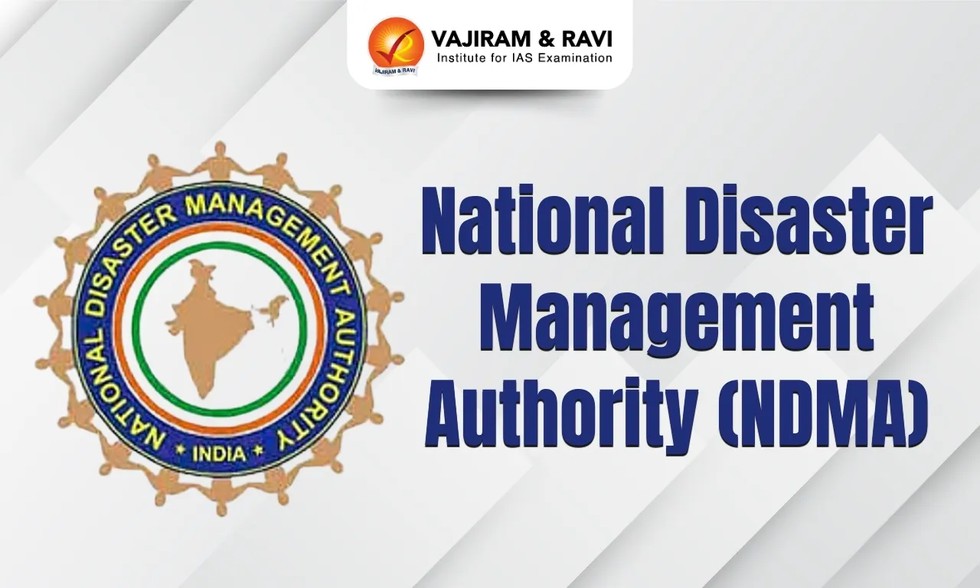About National Disaster Management Authority (NDMA)
- Establishment: The NDMA, established under the Disaster Management Act, 2005, is the country's apex body for disaster management and is chaired ex officio by the Prime Minister of India.
- Objectives: NDMA is responsible for laying down the national policies, plans, and guidelines for disaster management, coordinating and enforcing implementation of these policies, and approving plans developed by ministries, states, and other agencies to ensure integrated responses to disasters.
- Vision: NDMA's vision is to build a safer and disaster-resilient India through proactive, technology-driven, and sustainable strategies involving all stakeholders.
NDMA Organisation Structure
- Composition: The NDMA is chaired by the Prime Minister of India, assisted by a Vice-Chairperson (Cabinet Minister rank) and up to eight Members (Minister of State rank).
- Divisions: It operates through specialized divisions, including Policy & Plans, Mitigation, Operations, Communications & IT, Administration, and Finance.
- Institutional Mechanism: At the state and district levels, State Disaster Management Authorities (SDMAs) and District Disaster Management Authorities (DDMAs) function under NDMA’s overall framework and guidelines.
NDMA Functions and Responsibilities
NDMA, as the apex body, is mandated to lay down the policies, plans and guidelines for Disaster Management to ensure timely and effective response to disasters. Towards this, it has the following responsibilities:-
- Laying down policies, approving the National Disaster Management Plan.
- Framing guidelines for central and state authorities, integrating mitigation measures into development plans.
- Coordinating the enforcement and implementation of disaster management policies and plans.
- Recommending provision of funds for mitigation efforts and capacity building.
- Supporting international disaster relief as directed by the central government.
- Overseeing the functioning of the National Institute of Disaster Management (NIDM).
- Training officials, conducting preparedness drills, and developing community resilience strategies.
